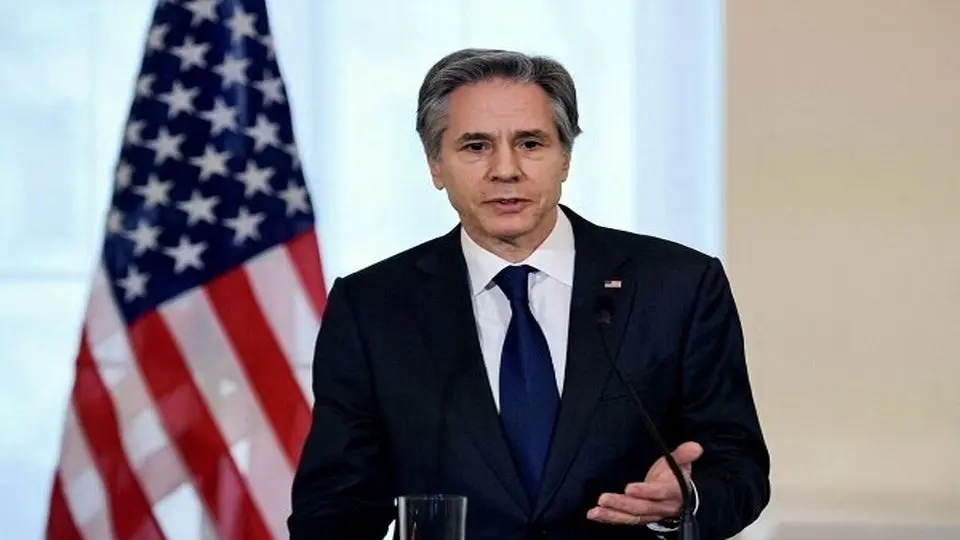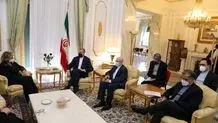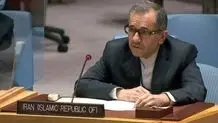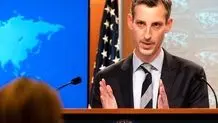Blinken claims;
Iran's latest response to nuclear deal proposal step backward
Iran has taken "a step backward" with its latest response to a nuclear deal proposal, US Secretary of State Antony Blinken claimed Monday, calling a near-term agreement "unlikely."

MEHR: Iran has taken "a step backward" with its latest response to a nuclear deal proposal, US Secretary of State Antony Blinken claimed Monday, calling a near-term agreement "unlikely."
Blinken, who has traveled to Mexico to meet with Mexican President Andrés Manuel López Obrador, once again ignored the destructive role of his country in the JCPOA negotiations and claimed, "What we've seen over the last week or so in Iran's response to the proposal put forward by the European Union is clearly a step backward and makes prospects for an agreement in the near-term, I would say, unlikely."
Blinken said Monday he could not offer a time frame for when he thinks it will be possible to reenter an Iran nuclear deal, claiming that Iran is either "unwilling or unable to do what is necessary to reach an agreement."
"They continue to try to introduce extraneous issues to the negotiation that make an agreement less likely," Blinken added. "But certainly what we've seen in the last week is a step backward away from the likelihood of any kind of near-term agreement."
His comments came as Mikhail Ulyanov, the head of the Russian delegation to the talks in the Austrian capital city of Vienna, said on Monday that Iran's response to the European Union’s draft text for the revival of the 2015 nuclear deal constitutes no "serious obstacle" to a final agreement between Tehran and the remaining parties to the multilateral accord. "Indeed, there are no issues in the Iranian response that could be a serious obstacle on the way towards the agreement."
Ulyanov once again stressed the important role of the negotiating parties' political will in reaching a final agreement on the revival of the nuclear deal, formally known as the Joint Comprehensive Plan of Action (JCPOA).
"The conclusion of the #ViennaTalks depends exclusively on the political will of the participating states," the senior Russian diplomat tweeted.
Iranian Foreign Ministry spokesman Nasser Kan'ani said earlier in the day that Tehran is awaiting an official response from the US.
"In its response to the EU coordinator, Iran has not raised new issues that could be obstacles to an agreement and conclusion of the talks. There have been no new demands…Other parties use propaganda to get more concessions," Kan'ani said during his weekly press conference.
The United States, under former President Donald Trump, abandoned the agreement in May 2018 and reinstated unilateral sanctions that the agreement had lifted.
The talks to salvage the agreement kicked off in Vienna in April last year, months after Joe Biden succeeded Trump, with the intention of examining Washington's seriousness in rejoining the deal and removing anti-Iran sanctions. Despite notable progress, the US' indecisiveness and procrastination caused multiple interruptions in the marathon talks.
Four days of intense talks between representatives of Iran and the five remaining parties to the JCPOA ended on August 8 with a modified text proposed by the EU on the table.
Iran submitted its response to the EU draft proposal on August 15, a week after the latest round of talks wrapped up. After submitting its response, Tehran urged Washington to show "realism and flexibility" in order to reach an agreement.
However, it took almost ten days for the Biden administration to submit its response to Iran's comments on the EU draft.
آخرین اخبار Iran را از طریق این لینک پیگیری کنید.




